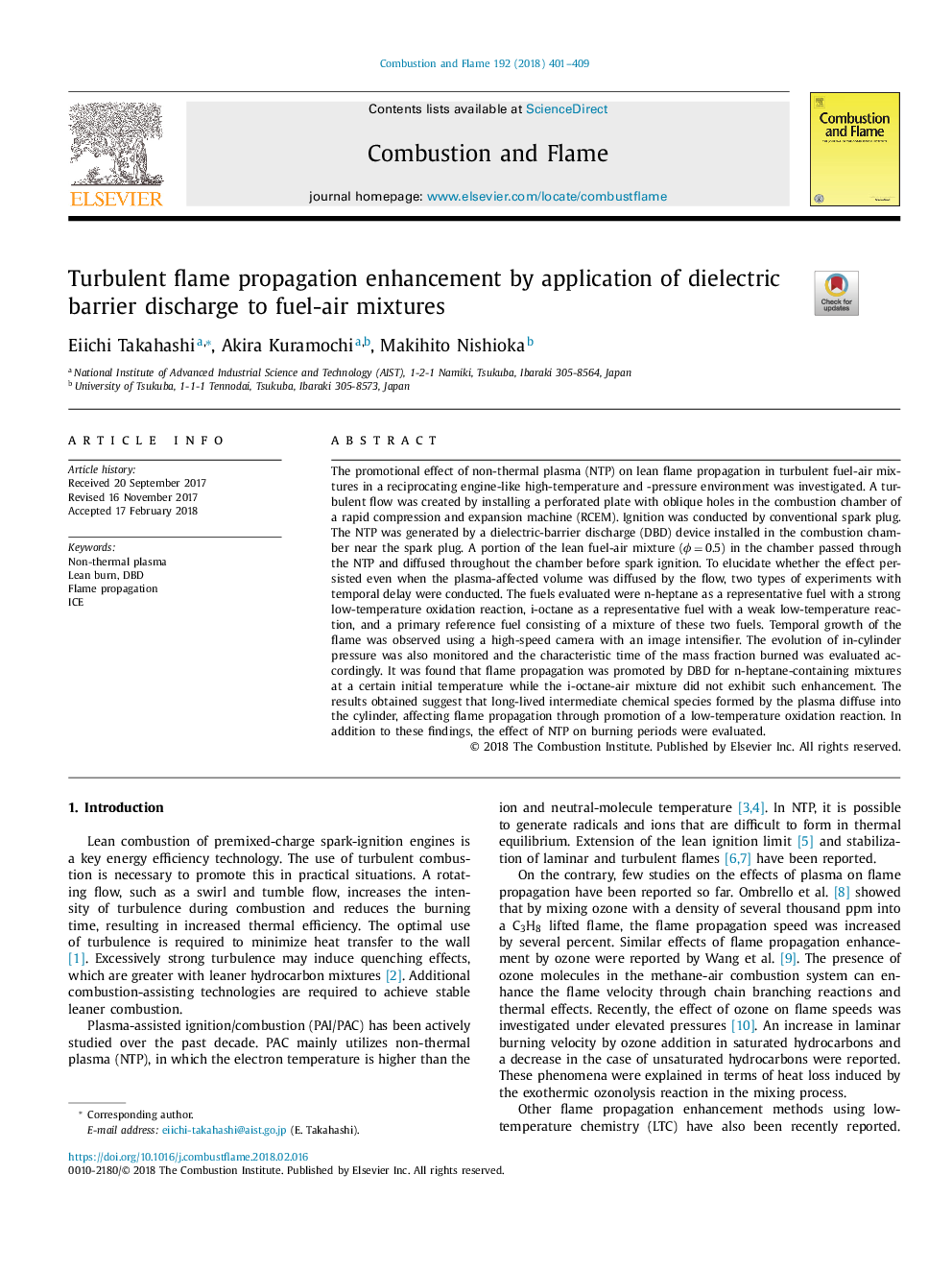| Article ID | Journal | Published Year | Pages | File Type |
|---|---|---|---|---|
| 6593692 | Combustion and Flame | 2018 | 9 Pages |
Abstract
The promotional effect of non-thermal plasma (NTP) on lean flame propagation in turbulent fuel-air mixtures in a reciprocating engine-like high-temperature and -pressure environment was investigated. A turbulent flow was created by installing a perforated plate with oblique holes in the combustion chamber of a rapid compression and expansion machine (RCEM). Ignition was conducted by conventional spark plug. The NTP was generated by a dielectric-barrier discharge (DBD) device installed in the combustion chamber near the spark plug. A portion of the lean fuel-air mixture (Ïâ¯=â¯0.5) in the chamber passed through the NTP and diffused throughout the chamber before spark ignition. To elucidate whether the effect persisted even when the plasma-affected volume was diffused by the flow, two types of experiments with temporal delay were conducted. The fuels evaluated were n-heptane as a representative fuel with a strong low-temperature oxidation reaction, i-octane as a representative fuel with a weak low-temperature reaction, and a primary reference fuel consisting of a mixture of these two fuels. Temporal growth of the flame was observed using a high-speed camera with an image intensifier. The evolution of in-cylinder pressure was also monitored and the characteristic time of the mass fraction burned was evaluated accordingly. It was found that flame propagation was promoted by DBD for n-heptane-containing mixtures at a certain initial temperature while the i-octane-air mixture did not exhibit such enhancement. The results obtained suggest that long-lived intermediate chemical species formed by the plasma diffuse into the cylinder, affecting flame propagation through promotion of a low-temperature oxidation reaction. In addition to these findings, the effect of NTP on burning periods were evaluated.
Related Topics
Physical Sciences and Engineering
Chemical Engineering
Chemical Engineering (General)
Authors
Eiichi Takahashi, Akira Kuramochi, Makihito Nishioka,
